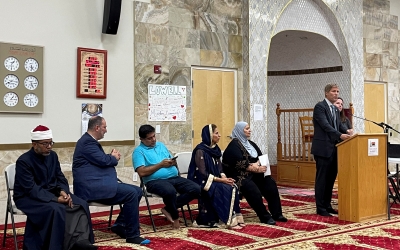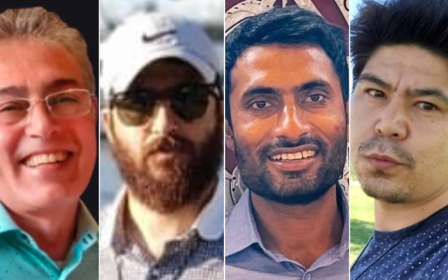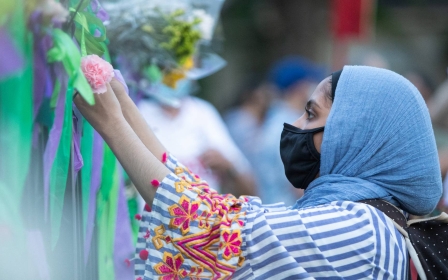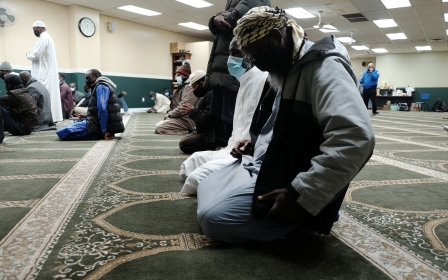Muslims in New Mexico say recent killings were personal, reject sectarian label
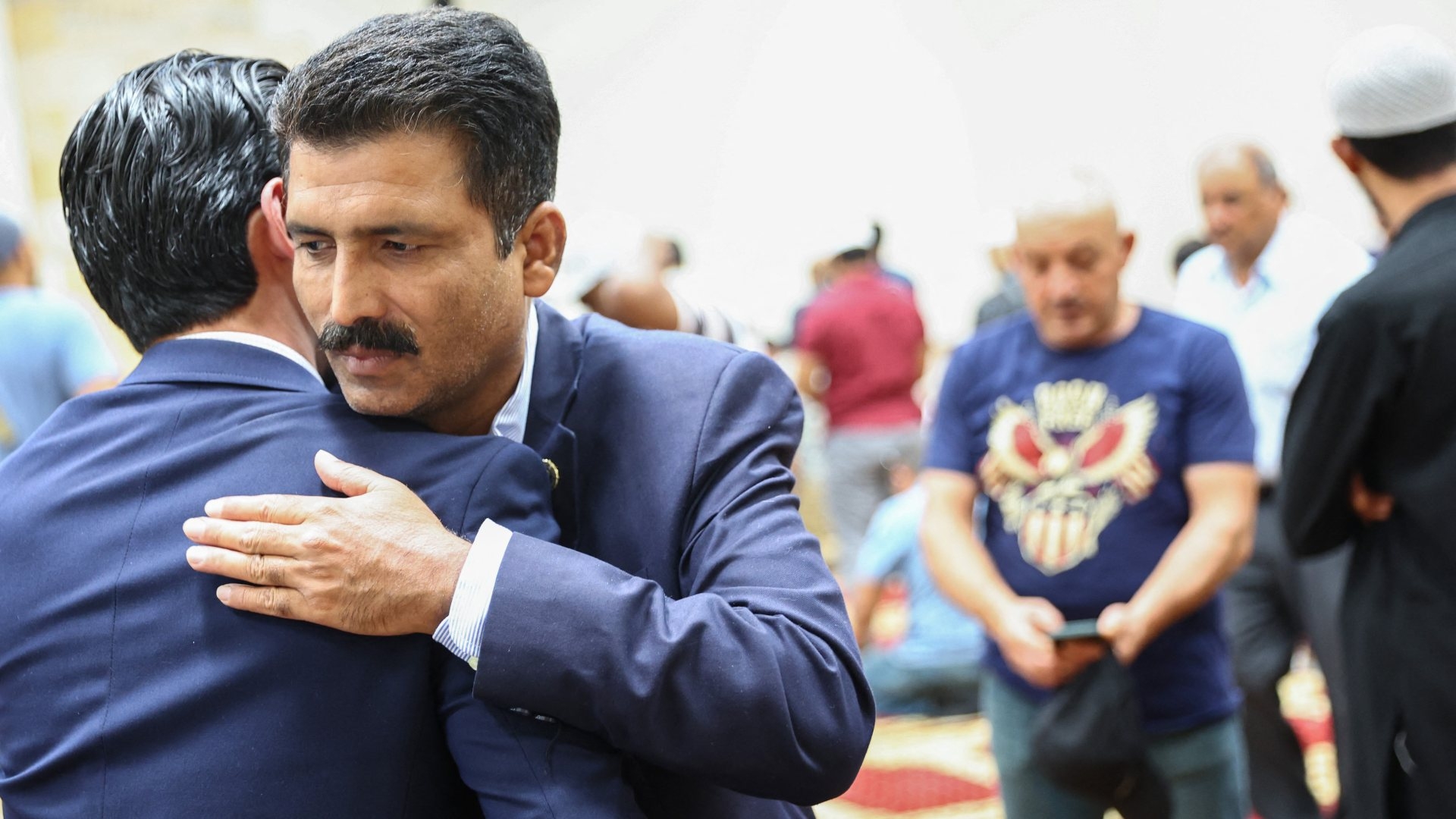
Muslims who knew the victims, and the suspected gunman, in the recent killings of four Muslim men over the past year, say that revenge and personal feuds were likely motives, not sectarianism between Sunnis and Shias.
Police last week arrested Afghan refugee Muhammad Syed, 51, as the prime suspect in the shootings of four Muslim men - three Shia Muslims and one Sunni Muslim - in New Mexico's largest city, Albuquerque.
Syed has denied involvement.
The perspective shared by members of the local Muslim community in New Mexico is at odds with some of the national Muslim groups, who said the killings point to the issue of sectarianism within the larger faith community.
Local Muslim leaders in New Mexico said it was inaccurate to call the killings sectarian, and feared the label could damage Shia-Sunni ties in the community.
Both Sunnis and Shias pray together at the Islamic Center of New Mexico, Albuquerque's main mosque.
Mazin Kadhim, who has been Syed's resettlement case worker since he arrived in Albuquerque six years ago, said that when Syed's daughter Lubna married Iftikhar Amir, a Shia Muslim, against his will in 2018, Syed's traditional male authority was challenged and he was humiliated.
Syed was charged with the 26 July murder of Amir's friend Aftab Hussein, 41, a cafe manager who was also a recent immigrant.
While Syed did hold hatred toward Shia Muslims, Khadim believes Hussein's death was a revenge killing for his daughter and son-in-law's defiance.
"It wasn't Sunni and Shia, it was extremism," Kadhim, who helped organise a Muslim unity march last week, told Reuters.
Imtiaz Hussain also said he does not believe sectarian hate played any role in the 1 August killing of his brother Muhammad Afzaal Hussain, 27, a city planning director who was Sunni.
Syed was charged with the killing.
Hussain, a 41-year-old Pakistani lawyer, said he dismisses claims his brother was mistaken as Shia.
Hussain said he met Syed a few times at Albuquerque's main mosque.
'The simplicity of saying this is Sunni-Shia hate crime is so reckless'
- Samia Assed, a Palestinian-American human rights activist
"He must have observed us praying in the same pattern as all other Sunni do," said Imtiaz Hussain, who believes his brother was shot by more than one person.
Afghan-American business owner Mula Akbar said Syed treated women as "property", seldom worked, and would try to illegally exchange digital food stamps for cash at stores, including at his own.
The food stamp scheme led to a dispute with supermarket owner Muhammad Ahmadi, 62, Akbar told Reuters. Ahmadi was shot dead on 7 November 2021, in a killing police linked to the three other deaths in July and August of this year.
Detectives said an "interpersonal conflict" may have driven the killings.
According to reports by The New York Times and the Associated Press, Syed told police that he had been with special forces in Afghanistan and fought the Taliban.
A judge on Wednesday ordered that Syed remains in custody pending trial based on charges that he murdered two of the men: Muhammad Afzaal Hussain and Aftab Hussein.
Syed's son Shaheen, 21, was arrested last week on firearms charges after providing a false address when he bought a rifle. Federal prosecutors have linked the younger Syed to the 5 August killing of Naeem Hussain, 25, a truck business owner.
Shaheen's lawyer called the allegations "speculative".
'We have never had issues before'
The Council on Islamic-American Relations (CAIR) was among Muslim advocacy groups that have condemned the killings as possible "sectarian hatred". Three of the victims were members of the Shia minority Muslim sect, while Syed himself is a Sunni Muslim.
Abed Ayoub, legal and policy director of the American Arab Anti-Discrimination Committee, said the killings were clearly anti-Shia.
The Shia Racial Justice Coalition "condemned the heinous targeted killing of Shias".
However, Samia Assed, a Palestinian-American human rights activist who hosted an interfaith vigil for the victims, told Reuters that "the simplicity of saying this is Sunni-Shia hate crime is so reckless".
Members of the Shia Muslim community in the US also told Middle East Eye last week that there is not a significant presence of violence between Sunnis and Shias in the country.
"I have lived here for 15 years. No one has ever uttered a word to me because of how I practice Islam. I have friends and neighbours who are Sunni. Every once in a while we send food back and forth to each other’s houses," Fatima Bukhari, a practicing Shia Muslim and resident of New Mexico, told MEE.
"Something is telling me this was a lone wolf attack. It feels like there was a glitch in the system. You can ask anyone who lives here that we have never had any issues before."
Middle East Eye delivers independent and unrivalled coverage and analysis of the Middle East, North Africa and beyond. To learn more about republishing this content and the associated fees, please fill out this form. More about MEE can be found here.


